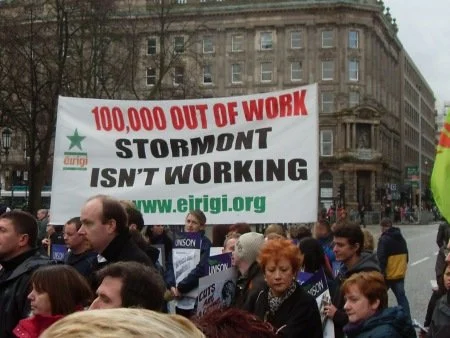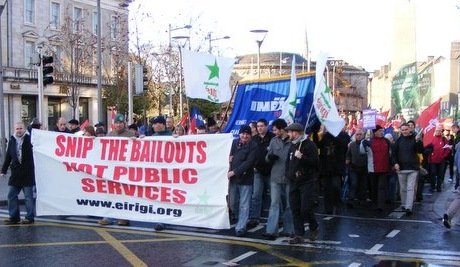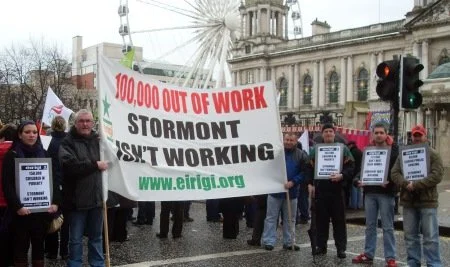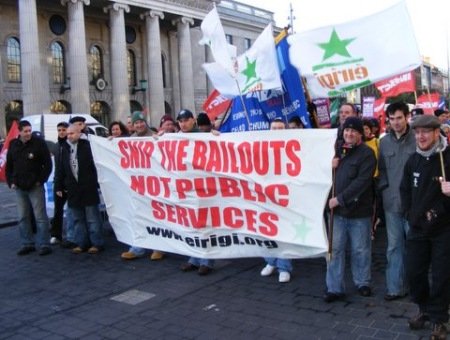Thousands Attend Day Of Action Across Ireland
Over 100,000 workers took to the streets across Ireland on Friday [6 November] in a mass display of discontent with the policies of the Six and Twenty-Six County administrations.
Among the marchers were many Éirígí activists, who took part in the Belfast, Cork, Dublin, Enniskillen and Sligo demonstrations.
The message sent out on the day was a militant one, with speakers warning that workers would not long carry the can for the failures of the business class and the political establishment.
In Dublin’s Merrion Square, SIPTU president Jack O’Connor said the labour movement in Ireland had always been asked to have regard for the “national interest” while the Twenty-Six County government made “a dog’s dinner of it”.
“What’s actually happening is that they’ve confused the national interest with the interest of the better off and the well-to-do and that’s a tragedy,” O’Connor continued.
At Belfast City Hall, UNISON’S Patricia McKeown warned workers that the next time they gather it would be on official strike action.
Further action was also promised by many other speakers. In Limerick, Mike McNamara, the president of the Council of Trade Unions in the city, said: “People don’t have any other choice at this stage. They are faced with this challenge that most people never had to face before and, when all other tactics have been used in the past like going into partnership, going into normal dispute mechanisms, in extraordinary times we just have to resort to revolutionary procedures to get what we want off the government.”
Speaking after he attended the Dublin demonstration, Éirígí chairperson Brian Leeson noted that Friday’s strong turn-out was a warning to those who wanted to implement cuts in public services, jobs and pay.
“It is clear from attendances at rallies across the country that there a lot of angry people in Ireland at the minute.
“They are angry that, as workers, they are being forced to make the sacrifices for the abject failure of the business class and the political establishment. They are angry that their jobs are on the line, their pay is under threat and their conditions are under question because a small group of wealthy people squandered the wealth that was created by working people.
“They are angry that the public services on which they and their families rely are criminally under funded and facing further financial deficits because the governments that misrule this country would rather bailout bankers and glorified gamblers.
“They are angry that northing is being done about the spiraling rates of unemployment, while multinational companies are allowed to flee the country with the financial incentives that were gifted to them by compliant government bodies.
“In the time ahead, this anger must be channeled into an organised movement for the defence of public services, jobs, pay and conditions. Out of this anger should also come an alternative vision of how the Irish economy should be run – an alternative that places the public interests ahead of private greed.”
Leeson concluded: “Union leaders have put down a marker by indicating that mass action by workers is the way forward – they must not retreat from this marker.”






